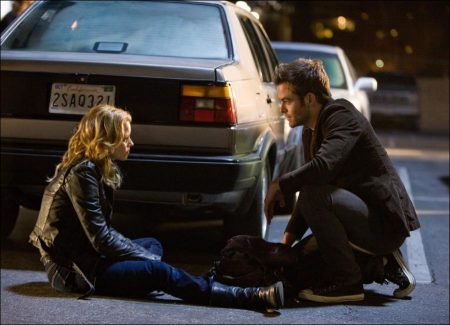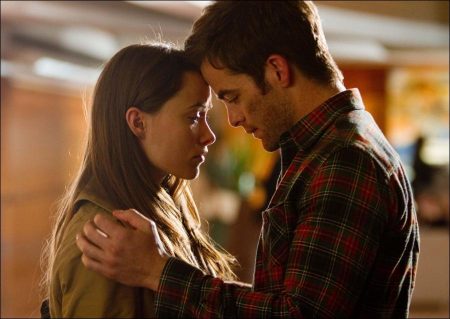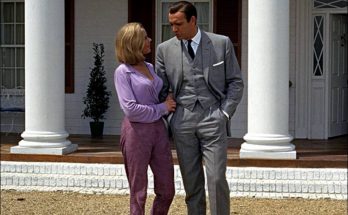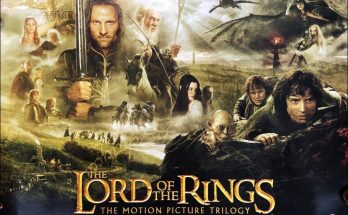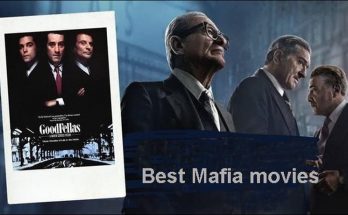People Like Us: Re-examining life choices. Director Alex Kurtzman’s business and writing partner of 20 years is Roberto Orci, with whom he has written such big event films as “Star Trek” and “Transformers.” Orci and Kurtzman have been friends since high school when they met in a film class. Both writers were inspired when they were young by independent films and over the years they became increasingly interested in going back to their roots to tell the kind of story that had inspired them to write in the first place—small, character-driven films.
When Kurtzman told Orci about the experience of meeting his half-sister, Orci related his aunt’s story aboutdiscovering that her father had a secret family she knew nothing about. It struck the two writers that the two stories, as Alex Kurtzman says, “are like chocolate and peanut butter—they work perfectly together.” This was the type of story that the two writers had been searching for.
Kurtzman and Orci contacted their good friend Jody Lambert, whom they had met in college, and invited him to help them write “People Like Us.” Kurtzman explains why Lambert was an important “fresh voice” to the writing process: “We were really interested in the idea of partnering with somebody who was totally unfettered by the writing rules of big action films and was only coming at it from a place of pure character and nothing else. We knew that this movie was going to succeed only if the scenes felt as if they were coming from an incredibly real place.”
Orci adds, “And if it feels real, it is because the three of us writers are friends who don’t hide a lot from each other. It’s easy when you’re writing something like this to share other stories with each other that can be embarrassing. You really want to open yourself up to your experiences and try to get them on the page and that’s something I think you can only do with people you really trust.”
The story evolved over a long period of time, but the writers willingly invested in the organic process of developing the story. Kurtzman explains, “We tend to move quickly through things, but this was one of those odd ones where we knew that at the core of it, it had to be very truthful and in order for it to be truthful and complicated, we needed to take time to find it. Unlike a big action movie that has, in many ways, preset structural elements that you have to hit, it was not as clear-cut in this case and we knew that the major turns of the story were going to be emotional ones.”
Co-writer and producer Orci concurs, adding, “This screenplay was not written for anyone but ourselves, so we could take as long as it took for the bread to rise and when the bread rose, we saw it and all collectively decided it was ready to be shown.”
As the three writers discussed the vibe of the story and the era that the father in the story would have lived in at the time, they started talking about California in the late’70s, early’80s, and what kind of man this father would have been. Jody Lambert’s father was a record producer who ended up giving up his recording career to pay more attention to his son as he grew up. They realized that Lambert’s experience growing up around music would bring even more authenticity to the film, so they crafted the father in the film to be in the music industry.
Lambert relates, “My father was in the music business and that gave us a different angle to work from. It opened up a lot of story ideas and other ways into the story that felt a little more authentic than, say, a guy who was a salesman.”
When it came to writing the story, the writers felt that it had to be very specific and realized that the smaller and more specific the details, the more the story would be relatable to everybody. Kurtzman comments, “What we really wanted was for everyone to say, ‘I have a story like that in my family.’ It may not be that exact story, but certainly a version of it.
“The more specific we made the details of the story, the broader the appeal seemed to become,” continues Kurtzman. “I think it’s because the things that resonate for audiences are the specific reflections of themselves or people they know. So, the more specific it is, the more personal it becomes for the audience and that was the goal.”
An example of the writers’ details, and one of the most intriguing, is the set of rules that Sam’s father had hanging on the wall of his study. In a moving scene, Chris Pine’s character Sam passes these rules down to his nephew Josh. Pine explains what the scene symbolized to him: “To me, passing down his father’s rules is Sam’s way of connecting his deceased father to the new generation of Harpers. Sam’s forgiving his father and saying, ‘I’m going to do you a solid, Dad. I’m going to give these rules to your grandson.’ He is in fact introducing Jerry to his grandson, passing down the little piece of love that Sam remembers to the next generation. It’s one man looking at a really young boy who’s going to be a man and telling him more or less that he has a family and that he is loved.”
Adds producer Bobby Cohen, “It’s one of the scenes that immediately grabbed me when I first read it. We’re all longing for real wisdom from our parents—not just about how to succeed, but how to live. To have Sam realize the latter in time to impart it to Josh is such a telling moment.”
The writers spent time creating characters who were emotionally complicated. Kurtzman explains the rationale: “The story is about the fact that we are all flawed in so many ways that people are complicated and they are messy and they don’t always make the right choices. In movies a lot of the time, everything is laid out in such neat ways and it feels too easy and we knew that part of being honest was making sure that these characters felt complicated and were genuine reflections of reality.”
Using this rationale, the writers developed Frankie and Sam as multilayered and complex characters who share a common bond: They are both broken people who were broken by the same man—their father. They grew up as only children, but when they finally meet, there is an intuitive, instinctive connection—a knowing undercurrent— that sustains them through conflict to discover not only each other, but themselves as well.
Bob Orci explains why bringing familial conflict to the characters in a real way is so important: “Conflict within family brings out the most complicated behavior in people. And if you were tracking true behavior, then the minute it becomes a gimmick or the minute it becomes something merely for drama or a joke, then you lose it.”
Visits: 43
